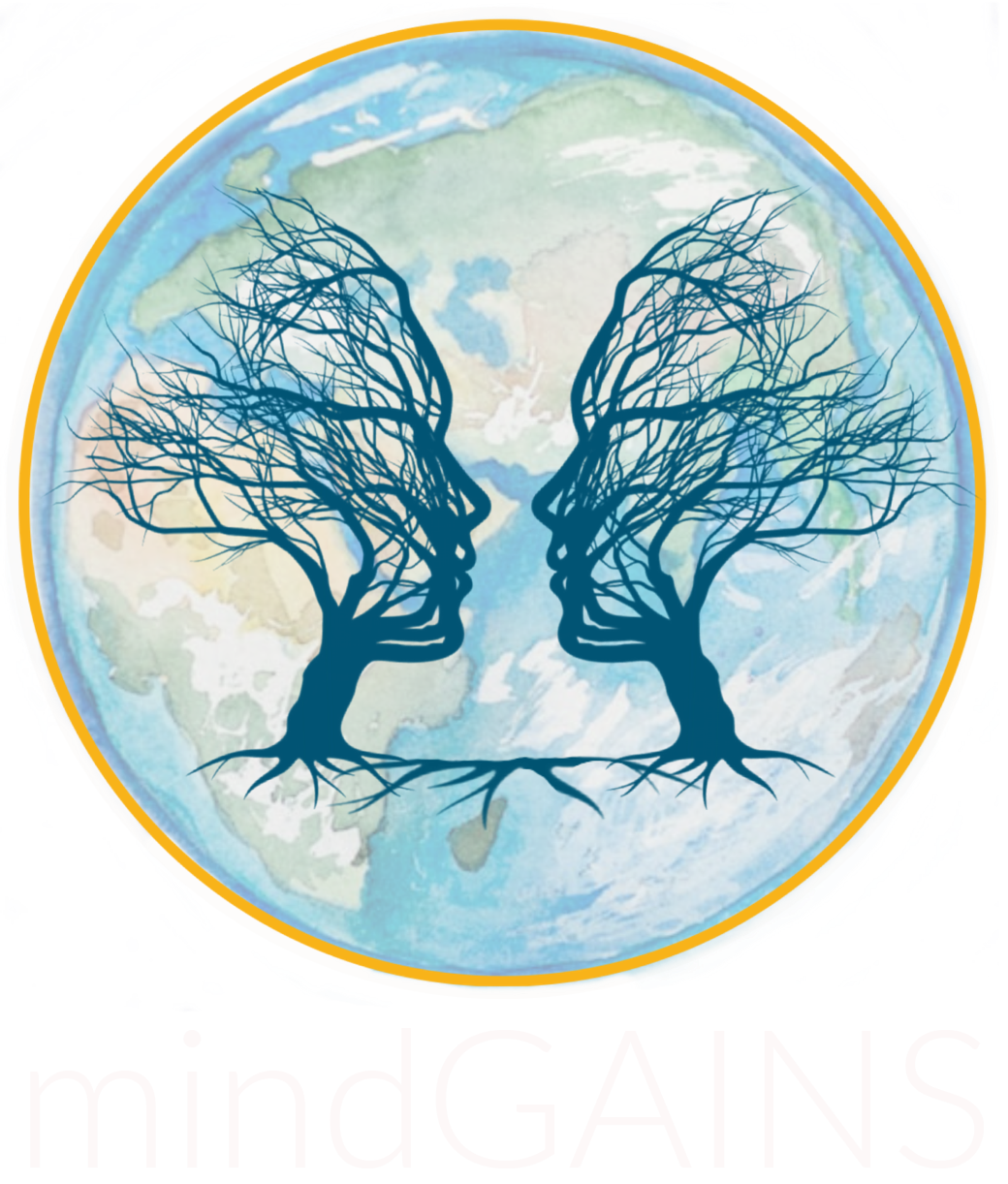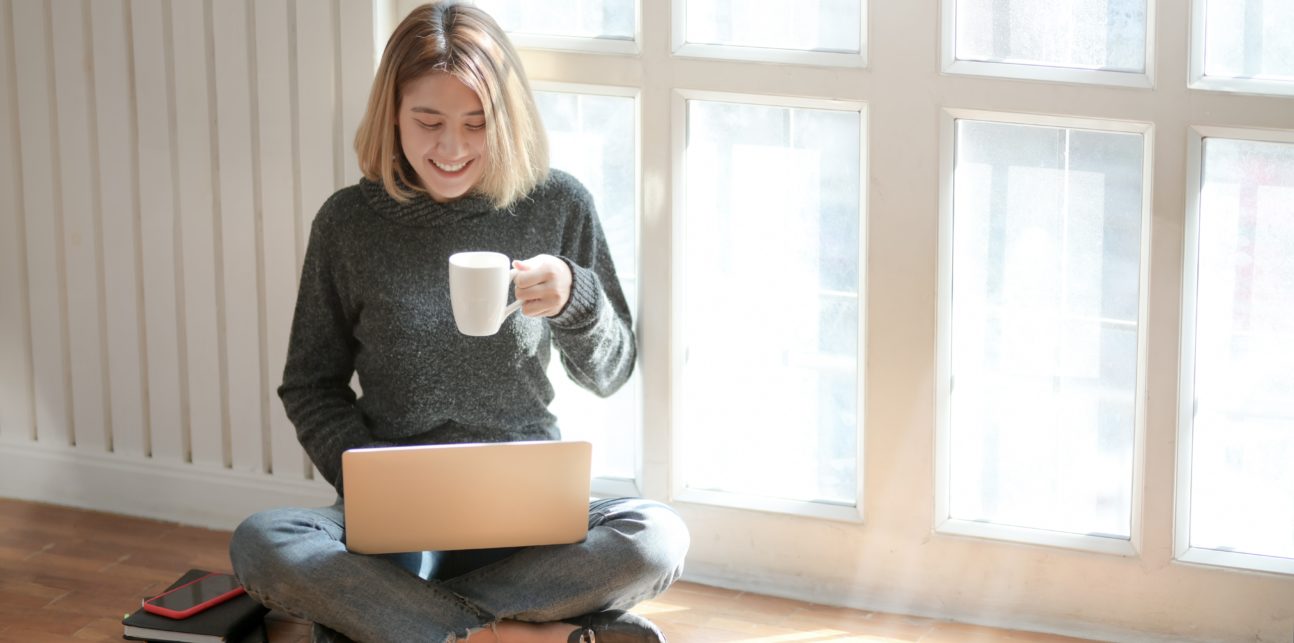By Robyn Gobbel, LCSW, RPT-S
How did we get lucky enough to live in a time-period where we have scientific evidence for the necessity of play and playfulness???
In a culture where we privilege verbal processing and solution identification, as well as a boot-straps mentality that hard work should feel hard, the truth that playfulness both heals and strengthens our mental wellness (which I think sounds like hard work that doesn’t feel hard!!) makes me giggle with delight.
You know… I’m a play therapist who once had a bit of an aversion to play and playfulness. Play, pleasure, playfulness, and delight felt frivolous and self-indulgent. It felt like a privilege awarded to the lucky, care-free few. Thankfully, studying IPNB fed my left-hemisphere the facts that it needed for me to trust that play, pleasure, playfulness, and delight are actually NONE of those things.
As I write this, we are beginning the sixth week of COVID-19 quarantine. I’m in my home-office in Michigan, a state with some of the strictest social isolation guidelines… meaning, in the last six weeks I’ve only seen my son and my husband face-to-face. And the few other trail-runners at our very deserted local trails. THAT’S IT!!!! When the rug was first pulled out from underneath us, our brains had to reorient to almost EVERYTHING. All the tiny little hidden details, all the implicit hidden regulators in our daily lives were plucked away, almost all at once. This was true for most of us, regardless of how COVID-19 directly impacts our lives. Our brains are so good at anticipation and expectation…thank goodness, or every moment of every day would feel new and unexpected—and that would create a reality that looks VERY different from what we are used to!
But when all anticipations and expectations are no longer true, we experience a sense of danger that can vary in intensity based on our current (and past) reality.
We saw this in our homes, on the news, and in our social media feeds. It seemed as though everyone’s brain went into protection mode, with our stress-responses overflowing every which way.
I thought to myself, “This cannot last. Even if the quarantine lasts, even if the pandemic gets worse, this level of stress-response cannot last. Our nervous systems simply can’t sustain it.” And here we are. Regardless of our circumstances, our brains our reorienting. We have new anticipations and expectations.
As we reorient, even if what we are reorienting to is still not good, we settle. And as we settle, our body’s natural drive toward healing and wellness begins to emerge.
Playfulness
Playfulness is both an indicator of and a path toward integration, safety, and wellness. Playfulness is the safe, energetic, and connected state of our nervous system. It’s communicated with our tone of voice, our facial expressions, and shared moments of delight. We can experience playfulness with one another… and with ourselves.
How lucky we are that in a time of unprecedented isolation and fear, we can still find ways to connect and experience playfulness with one another… young and old. Playfulness is not just for children!! Inviting someone into play and playfulness communicates, “I’m safe, we’re safe. I see you. I delight in you.” It’s hard to imagine a more important message to give and receive during a quarantine.
We can send text messages full of emojis that communicate the non-verbal tone we mean to convey. I know I’m not the only one searching for just the right funny GIF and enjoying a LOL moment when a silly one arrives from a friend. AH! You know me well enough to send the perfect LOL GIF! You care about me enough to have spent the time searching.
We can make a phone call to hear each other’s voices, to soothe one another that something hasn’t changed- our relationship with each other. We laugh as we ask “What did you do today” when we both know the answer…the exact same thing we did yesterday! In fact, is today even a new day? When was yesterday? We share an unspoken understanding of how amazing it feels to leave the house to do the simplest of tasks- like getting prescriptions through the drive-up window- giggling with a shared sense of “I can’t believe how excited I am by this quick drive to the pharmacy!”
We can log in to a video call, where we receive longed-for connection to each other’s eyes and faces. And when we connect with people we were connected to ‘in real life’ before the quarantine began, a felt-sense of presence and togetherness begins to emerge, allowing our minds to fill-in-the-blanks. We are searching the internet for games to play when we aren’t together, taking pictures of the Scattergories game cards and sharing them via a text message, or positioning the camera perfectly on a game-board while someone is responsible for moving all the pieces. And not only are we together and that is wonderful, but playfulness emerges from the creativity of figuring out how to play a game together when we aren’t together.
I have loved watching how human creativity and our propensity to bring playfulness and delight into hard situations continues to flourish, even when we can’t be physically together. I know I’m not the only one who has had a significant increase in sharing memes and silly videos with friends and family. The playfulness is shared amongst us as we laugh together, and I can also notice that the person who created the meme or the video was experiencing their own playfulness and was willing to share. We can pick up the telephone or turn on that video call to giggle over something that previously would have felt too mundane to bother making a phone call.
This isn’t a substitution for all the resonant goodness that emerges from physical presence with one another. But, wow, it’s not a bad placeholder. Playfulness can be drawn upon to prompt connection and felt-safety; it will also spontaneously emerge from connection and felt-safety. Those of us with the great fortune to be supporting others through this overwhelming, chaotic, and fearful time can trust in the truth that playfulness is enough. Playfulness doesn’t minimize the devastating losses. Playfulness is the treatment for isolation, fear, and loneliness.
I cannot WAIT to join my dear mentor and friend, Bonnie Badenoch, PhD (GAINS Advisory Board and author of therapy books about IPNB) for a live Living Journal webinar, on May 20, 2020. An integral part of my own inner community, Bonnie has been a part of my journey of healing my relationship with play, pleasure, playfulness, and delight. I hope you’ll be able to join us, along with our GAINS co-hosts, as we dive even deeper into playfulness as the treatment.

